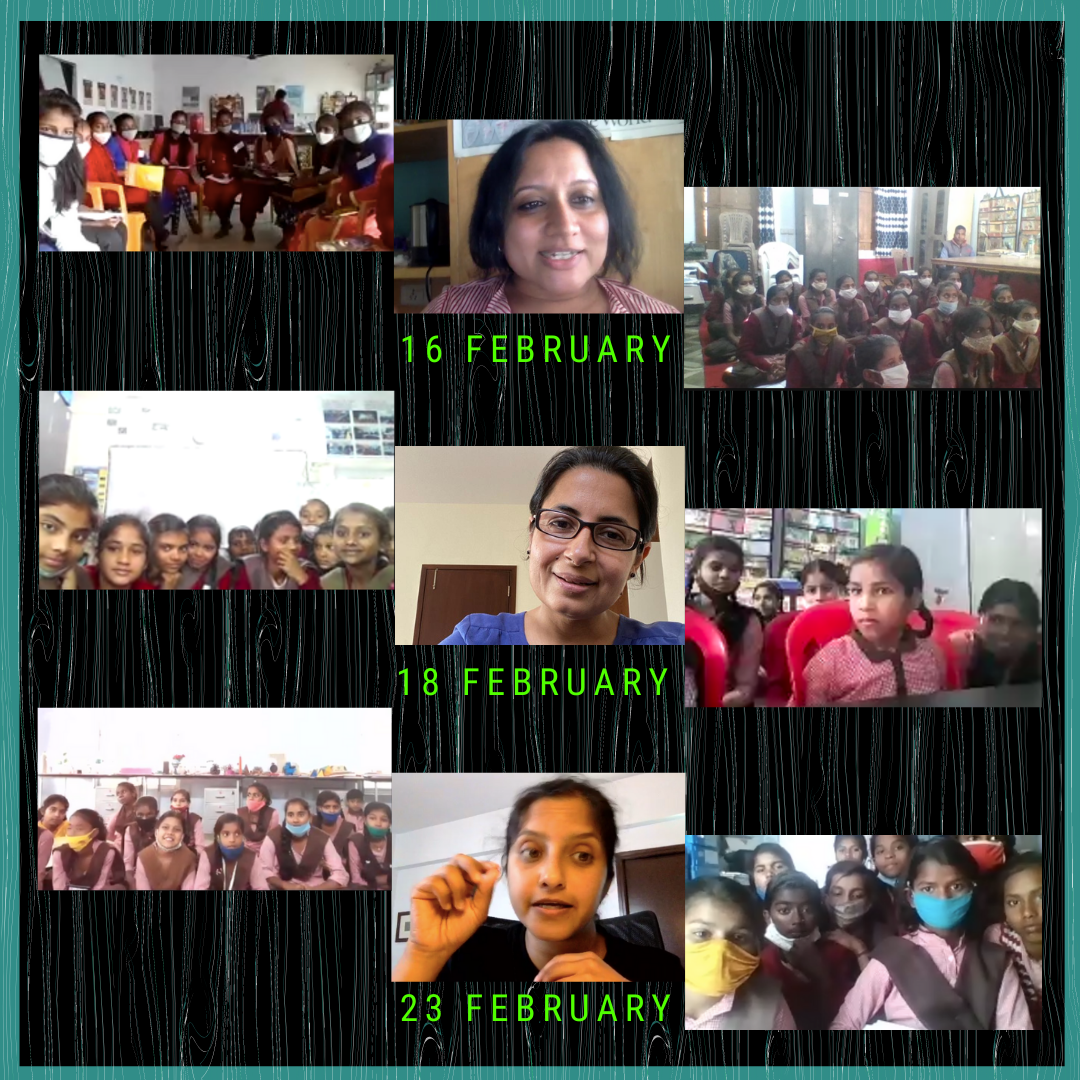The sixth International Day for Women and Girls in Science was celebrated on 11th February, 2021, a day dedicated to recognising the critical role women and girls play in science and technology. Shortly after, we had the first session of our new outreach initiative organised in collaboration with CARE India. CARE India is a not-for-profit organisation which has worked towards empowering women and girls for over 70 years. The initiative builds bridges between scientists who are women, and girls in government schools from across India who would otherwise not have the opportunity to interact with these scientists. The hope is to inspire them to pursue careers in science, and provide some practical advice on how they might do so against all odds.
The sessions kicked off on 16th February, 2021 with Dr. Arati Ramesh and students from the towns of Bahraich and Gonda, in Uttar Pradesh. The BLiSC Communications Office introduced the students to our campus and research environment. Arati shared her story of becoming a scientist, from her childhood in Kanpur, to the present where she runs her own lab at NCBS. The students were curious and asked a range of questions. Some covered topics that had piqued their interest during the chat, and others that had been on their minds for a while, including planets, climatic conditions at the poles versus the equator, the appearance of leaves, and COVID-19. They eased into the conversation and began to ask about Arati’s journey to becoming a full-time scientist, and her favourite foods!
In the second session, Dr. Dimple Notani shared her own very special and inspiring story with the students. Hailing from a small town and with little interest in academics when she was young, she’s come a long way. Dimple was selected as one of the first life scientists from India to join the European Molecular Biology Organization’s (EMBO) Global Investigator Programme, in 2019! Taking in everything Dimple said with rapt attention, the girls in Kanpur and Bahraich were soon volleying questions about her life, the years she’d spent studying, societal and family expectations, as well as a number of questions on their favourite science topics. Dimple shared her experiences in school, college, of travelling to Tamil Nadu for her MSc, missing the familiar food of her home, and her time in the USA, while constantly emphasising all the things she learned through those explorations. It was clear to see that the students felt incredibly invested in these stories and were filled with a sense of wonder and hope.
Coming up in the first week of March, we have planned another set of interactions with scientists at DBT-inStem and students in Tamil Nadu. The Comms team is delighted to be able to work with underserved communities and forge paths in making enduring connections between science and different sections of society, from students of all ages, to non-English speakers, and audiences in non-urban and rural environments.










0 Comments